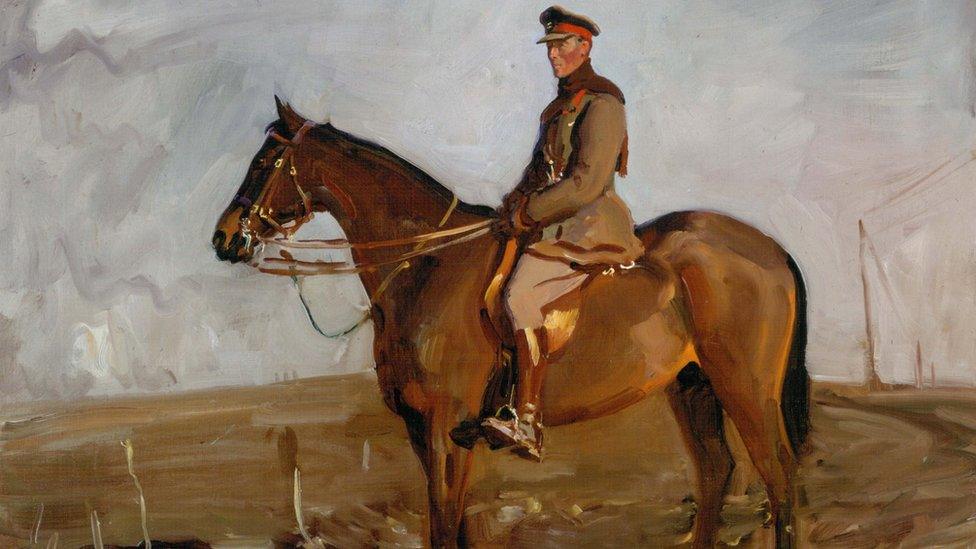Dickin Medal: PDSA hands animals 80th anniversary bravery awards
- Published
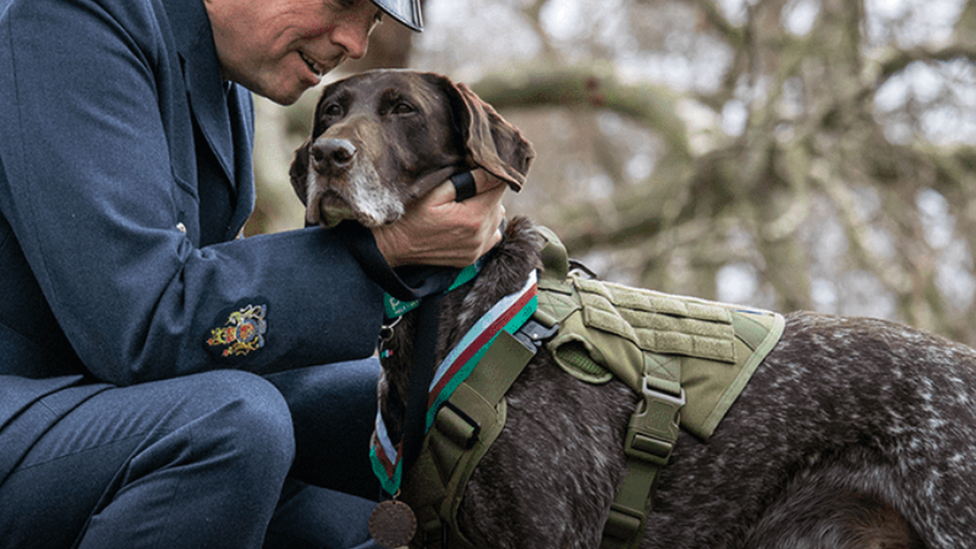
Hertz was recognised for protecting the lives of troops
A charity is celebrating 80 years of a bravery award that recognises animals for heroic acts and devotion to duty.
Since its introduction in 1943, the Dickin Medal has been awarded 75 times to 38 dogs, 32 World War Two messenger pigeons, four horses and one cat.
Regarded as the animal equivalent of the Victoria Cross, it was set up by PDSA founder Maria Dickin.
The Telford-based national charity said the award continued to be "inspirational and relevant".
It has been highlighting some of the recipients, for the likes of bravery during military operations and helping save the lives of a flying boat crew forced to ditch their craft in the sea.
Hertz
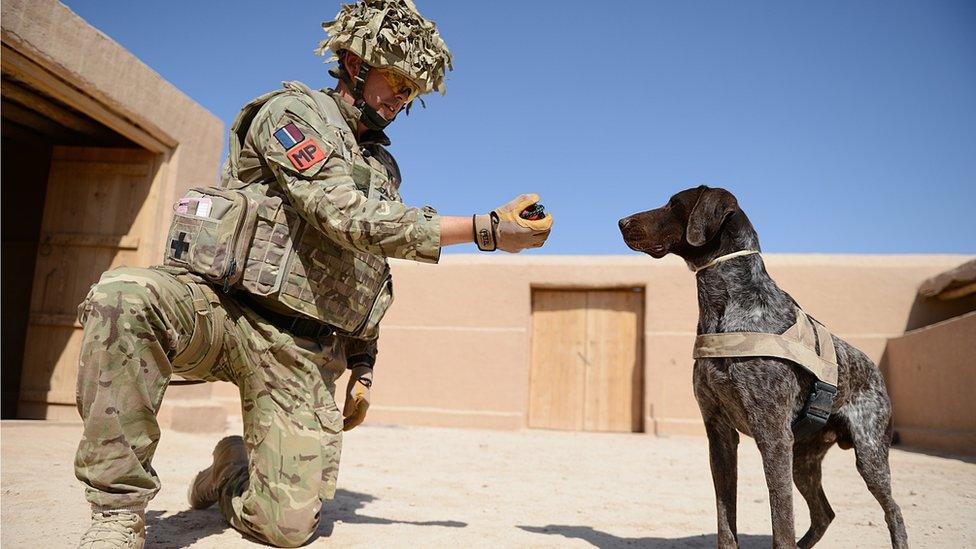
Hertz served in Afghanistan with the RAF Police
German shorthaired pointer Hertz was awarded the PDSA Dicken Medal for protecting British troops in Afghanistan while serving with the Royal Air Force (RAF) Police.
He was sent to Afghanistan in 2013 as part of Operation Herrick.
Now retired, Hertz was a pioneer in his field as the first canine in British military history to detect electronic communications equipment.
Many of the items he found led directly to the gathering of intelligence about potential threats and attacks on British and Allied personnel, said the charity.
In 2022, he became the 74th animal to receive the award.
Warrior
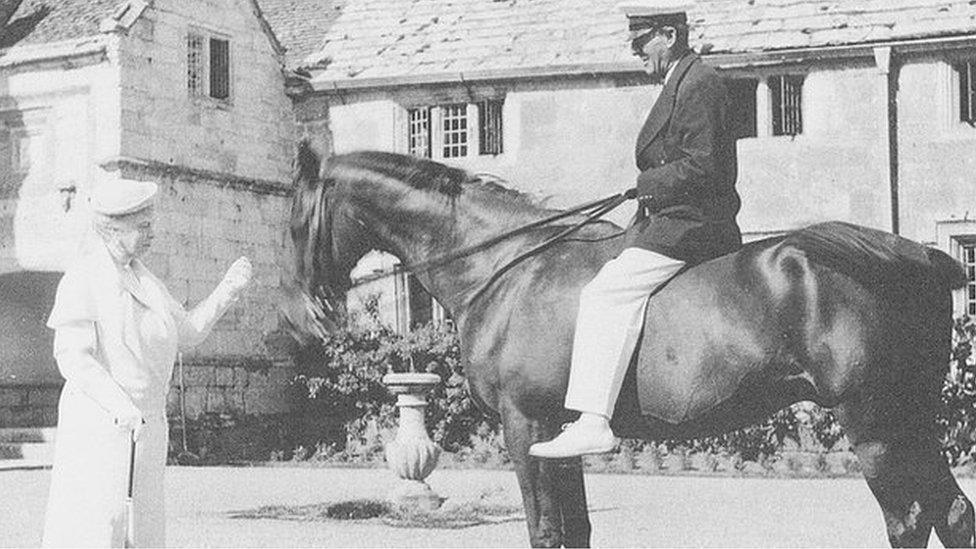
Warrior and Gen Seely met Queen Mary, the wife of George V
Dubbed "the horse the Germans couldn't kill", Warrior served on the front line for the duration of World War One.
The equine hero was subjected to machine gun attacks by air, survived falling shells at the Battle of the Somme, was buried under debris and got stuck in mud at Passchendaele, and was twice trapped under the burning beams of his stables.
The medal was awarded posthumously at a ceremony at the Imperial War Museum in 2014, and accepted by horse racing broadcaster Brough Scott, the grandson of Warrior's rider Gen Jack Seely.
The animal was injured but survived the war and returned home in 1918 to the Isle of Wight, where he lived with the Seely family until his death in 1941, aged 32.
The PDSA said Warrior was a "true survivor" and his story "epitomises the vital roles played by millions of animals".
White Vision

White Vision earned her award for contributing to the rescue of an air crew
One of the first recipients of the medal, White Vision helped save the lives of 11 crew members who had been forced to ditch their flying boat in the sea, near the Hebrides, in October 1942.
Lacking radio contact, the crew's only hope of raising the alarm lay with the aircraft's two carrier pigeons.
One of the birds never made it back, but White Vision battled headwinds, rain and near-zero visibility for nine hours to deliver her message and raise the alarm.
Crew members were lifted to safety just as the aircraft disappeared under the waves.
Simon
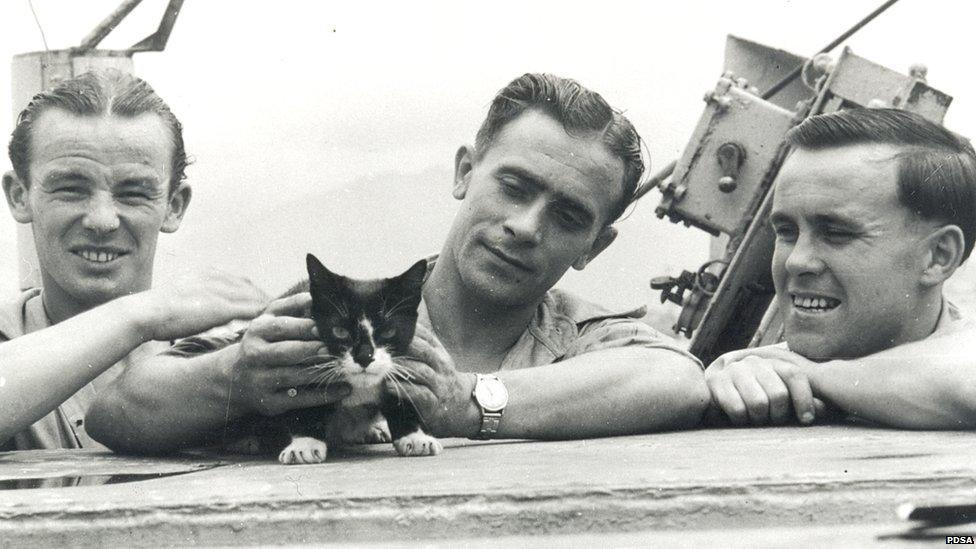
Simon helped the crew of HMS Amethyst by protecting their food supplies from rats
Simon is the only cat to have ever received the Dickin Medal, external, which was awarded posthumously.
He served on HMS Amethyst getting rid of rats, but was wounded by a shell blast that left the crew stranded for almost 10 weeks.
Despite his injuries, he protected the crew's essential supplies from the "particularly vicious" rats.
He received a hero's welcome when the ship returned to dock in Plymouth on 1 November 1949.
The PDSA says Simon's behaviour throughout his tour of duty was of "the highest order".

Follow BBC West Midlands on Facebook, external, X, external and Instagram, external. Send your story ideas to: newsonline.westmidlands@bbc.co.uk, external
Related topics
- Published5 April 2016
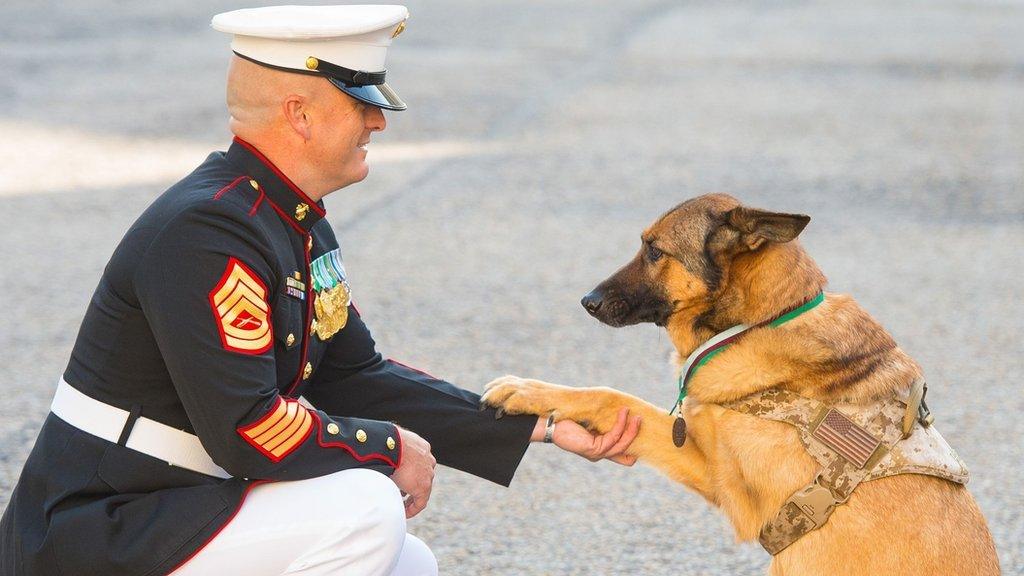
- Published23 February 2022
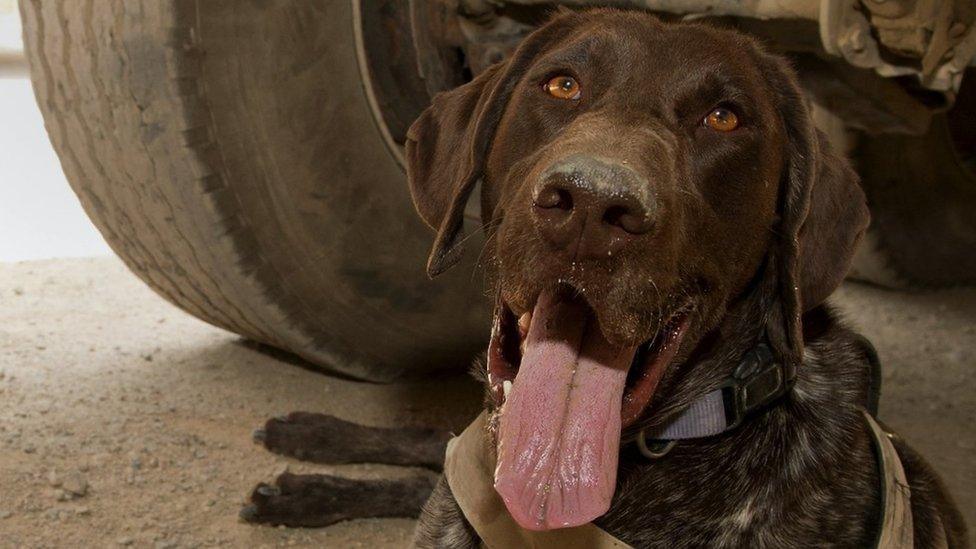
- Published2 September 2014
